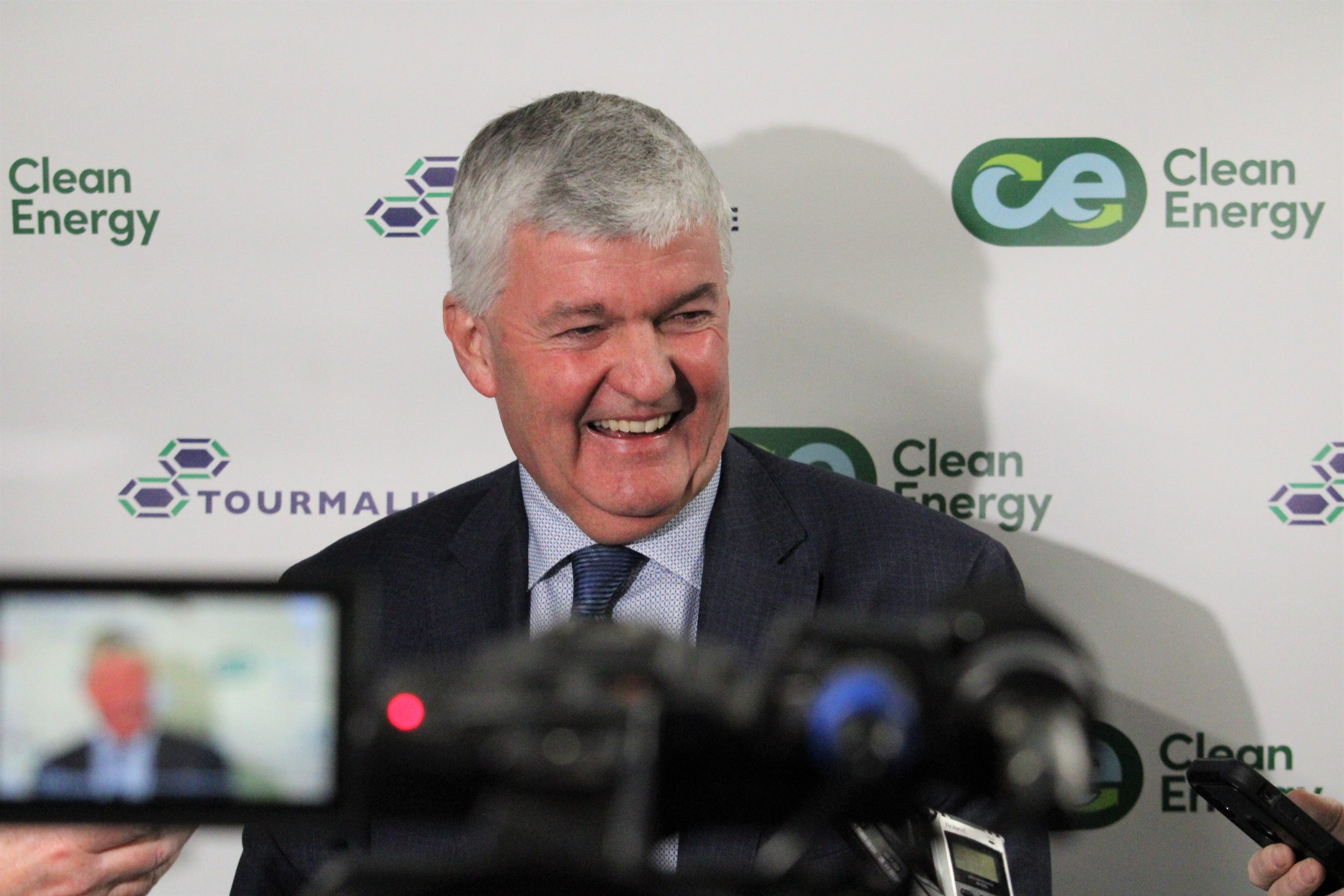
Canada’s largest natural gas producer is taking a significant step to reduce emissions in the transportation sector.
Tourmaline Oil, along with California-based 50-50 partner Clean Energy Fuels, is spending $70 million to build and operate a network of up to 20 compressed natural gas (CNG) fueling stations across western Canada over the next five years. The stations, operated by Clean Energy with Tourmaline-supplied natural gas, will provide extended highway corridors for CNG-equipped heavy duty and commercial trucks.
“This is an opportunity to improve the environment by using a resource that we have in abundance, which is natural gas,” said Michael Rose, CEO of Tourmaline.
Tourmaline produced approximately 2.3 billion cubic feet of natural gas per day in 2022 – about 13 per cent of Canada’s total.
The CNG stations will give vehicle operators an opportunity to transition fleets to lower emissions fuel, the company said.
CNG produces 20 per cent less C02 than diesel and 99 per cent fewer airborne particulates. CNG also produces 90 per cent less carbon monoxide, 90 per cent fewer nitrogen oxides, and 99 per cent fewer Sulphur oxides, according to a joint Tourmaline and Clean Energy FAQ document.
“We think natural gas is a great enabler of almost the entire energy stack – it’s going to be the single biggest component of it, but it also enables renewables because you need natural gas as a backstop,” said Rose, noting Tourmaline’s drilling fleet now runs on CNG.

Michael Rose, CEO of Tourmaline Oil at a press conference in Calgary Alta. April 2023. Photo by James Snell for the Canadian Energy Centre
The transportation sector accounted for 22 per cent of Canada’s total emissions in 2021, according to the latest National Inventory Report prepared for the United Nations.
Once operating, the CNG stations could fuel around 3,000 trucks a day, lowering C02 emissions by 72,800 tonnes per year – equivalent to removing 15,690 cars from the road or planting 1.2 million trees and letting them grow for a decade, said Tourmaline.
The partnership’s first CNG station is operating north of Edmonton. Subsequent locations are planned in 2024 for Calgary and Grande Prairie in Alberta and Kamloops, B.C., with the network expected to grow from Prince Rupert, B.C. to Winnipeg, Man.
As demand for CNG grows, station capacity can be increased and new stations added, said Tourmaline. Also, the sites could in the future be converted to renewable natural gas – a product derived from decomposing organic matter.
Diesel and CNG engines both use the process of internal combustion.
However, CNG trucks don’t require the tall exhaust pipes used to expel fumes on diesel trucks. Another difference is CNG trucks have larger – high pressure – fuel tanks. As CNG has lower energy content per litre than diesel, more fuel volume is needed to achieve a reasonable operating range.
The Mullen Group, one of North America’s largest logistics companies, will operate a fleet of CNG trucks across the station network. The company reports good reliability and fuel economy with its growing use of CNG.
“We have already made a significant investment in CNG trucks and are extremely confident this technology will play a huge role in decarbonizing our industry,” said Murray Mullen, president of the Mullen Group.
Clean Energy owns, operates and supplies hundreds of fueling stations across North America. The Tourmaline partnership will be its first “concerted effort” to build a Canadian network.
“We think that’s just the beginning,” said Andrew Littlefair, CEO of Clean Energy. “Over time, we will begin to blend in renewable natural gas.”
The unaltered reproduction of this content is free of charge with attribution to Canadian Energy Centre Ltd.